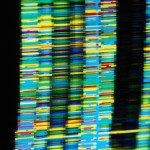Lien vers Pubmed [PMID] – 30316994
Autoimmun Rev 2018 Oct;
The relapse rate in antiphospholipid syndrome (APS) remains high, i.e. around 20%-21% at 5 years in thrombotic APS and 20-28% in obstetrical APS (Cervera et al., 2009, 2015 [2,3]). Hydroxychloroquine (HCQ) appears as an additional therapy, as it possesses immunomodulatory and anti-thrombotic various effects (Pericleous et al., 2016; Andrade and Tektonidou, 2016; Belizna, 2015; Erkan et al., 2014; Erkan and Lockshin, 2012; De Carolis et al., 2015; Mekinian et al., 2015; Merashli et al., 2015; Galli, 2014; Lopez-Pedrera et al., 2015; Hu et al., 2017; Ben-Zvi et al., 2012; Belizna et al., 2017 [4-16]). Our group recently obtained the orphan designation of HCQ in antiphospholipid syndrome by the European Medicine Agency. Furthermore, the leaders of the project made the proposal of an international project, HIBISCUS, about the use of Hydroxychloroquine in secondary prevention of obstetrical and thrombotic events in primary APS. This study has been launched in several countries and at now, 53 centers from 16 countries participate to this international trial. This trial consists in two parts: a retrospective and a prospective study. The French part of the trial in thrombosis has been granted by the French Minister of Health in December 2015 (the academic trial independent of the pharmaceutical industry PHRC N PAPIRUS) and is coordinated by one of the members of the leading consortium of HIBISCUS.


